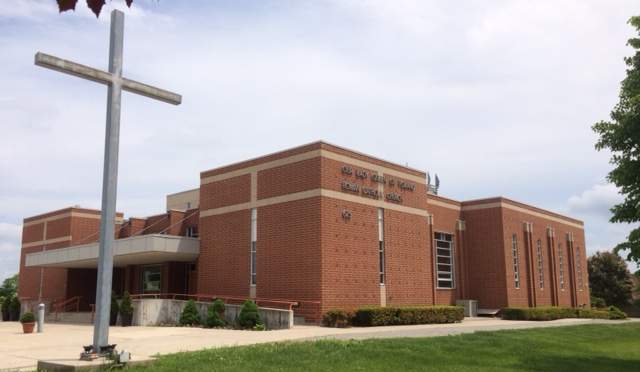
Statement and Call to Action from Cardinal Thomas Collins Concerning Euthanasia/Assisted Suicide
“I will give no deadly medicine to anyone if asked, nor suggest any such counsel…” - The Hippocratic Oath
“You shall not kill.” Exodus 20:13
“Contemplating Suicide? We Can Help!” There was a time when such an advertisement pointed to a crisis line, where someone was standing by to counsel you and to offer hope in a situation of intolerable pain. We are in a very different time, now. In a few short months assisted suicide, its grim reality hidden behind blandly deceptive terms like “Medical Assistance in Dying”, will be declared an acceptable option in our country, enshrined in law. As the federal government prepares legislation to implement the Supreme Court’s decision, it is crucial to consider the effects of this fundamental change in our laws.
Death comes to us all, sometimes suddenly, and sometimes slowly. Although patients benefit from medication that controls pain, they are fully justified in refusing burdensome and disproportionate treatment that serves only to prolong the inevitable process of dying. But dying is simply not the same as being killed. We are grateful for physicians and nurses and others who offer medical assistance to patients who are dying, but it is never justified for them to kill a patient.
Watch video: Cardinal Thomas Collins on Euthanasia and Assisted Suicide
Physicians across our country who have devoted their lives to healing patients will soon be asked to do the exact opposite. They will not be asked to ease their suffering by providing them with treatment and loving care, but by putting them to death. In fact, killing a patient will no longer be considered a crime, but will actually be seen as a kind of health care, complete with legislation to regulate it.
On February 25, 2016, a parliamentary committee presented the lawmakers who will craft this disturbing legislation with 21 recommendations. They should shock us to the core, especially if we believe, complacently and incorrectly, that the change in the law will affect only a few people with grave physical illness, who have lived a long life, and are near death. In fact, the recommendations include:
- A desire to allow, beginning in three years, access to euthanasia/assisted suicide for minors (those under 18).
- The ability for those diagnosed with conditions like dementia to pre-schedule their deaths.
- Insistence that those with psychiatric conditions be eligible for euthanasia/assisted suicide.
- A requirement that any institution receiving public funding, including Catholic hospitals, long-term care facilities and hospices, provide euthanasia/assisted suicide, thus forcing them to repudiate the very principles that are the foundation of their immense service to us all.
- A requirement that doctors who refuse to kill a patient must make sure that someone else does it. No other country in the world requires such a violation of conscience.
It is unjust to force people to act against their conscience in order to be allowed to practice as a physician or, in the case of a health care facility, in order to qualify for government funding. It is not tolerant of religious diversity. It is religious discrimination that punishes those who so faithfully serve everyone who comes to them, and have done so since before Canada existed but who, in good conscience, cannot perform some procedures, such as helping to kill their patients.
When the state goes beyond its legitimate but limited role, and suppresses conscience rights in this way, I am reminded of a man whose employer told him to do something against his conscience. He courageously replied: “You employ me; you don’t own me.”
End-of-life care (palliative care) is currently accessible to only 30% of Canadians. This is a tragedy, and unacceptable. Instead of providing ways to hasten death, we should be providing palliative care for every Canadian, greater support for those with mental illness, and help for those tempted to suicide.
Some people become convinced that, at a certain point, there is no longer any “value” in their life, since they cannot function as they once did. Their concern deserves our compassionate respect, but it is a shaky foundation for social policy. Our value as people comes not from what we can do, but from who we are. It comes from within, from our inherent dignity as human beings. Once we make people’s worthiness to live dependent on how well they function, our society has crossed the boundary into dangerous territory in which people are treated as objects that can be discarded as useless.
Mindful of the inherent dignity of each person, it is time for families across the country to have a difficult but necessary conversation about the reality of death. We need to understand the destructive implications of these legal changes, and offer truly loving and merciful alternatives. And Christians should be guided by these words of Jesus, that for 2000 years have inspired heroic acts of loving service: “Whatever you did for one of these least brothers of mine, you did for me.” (Matthew 25:40)
Thomas Cardinal Collins
Archbishop of Toronto
March 1, 2016
Tell Legislators How You Feel
Those people who are concerned about this legislation are encouraged to visit CanadiansforConscience.ca and join the Coalition for HealthCARE and Conscience. The coalition is made up of numerous partners, including more than 5,000 Canadian doctors, and has been formed to educate and engage those who share our concerns.
You can use this website to write directly to your Member of Parliament, respectfully expressing your concerns. Please urge your elected representative 1) to protect the vulnerable; and 2) to ensure that individuals and institutions can provide health care without having to compromise their moral convictions.
For more resources, please visit www.archtoronto.org/euthanasia
